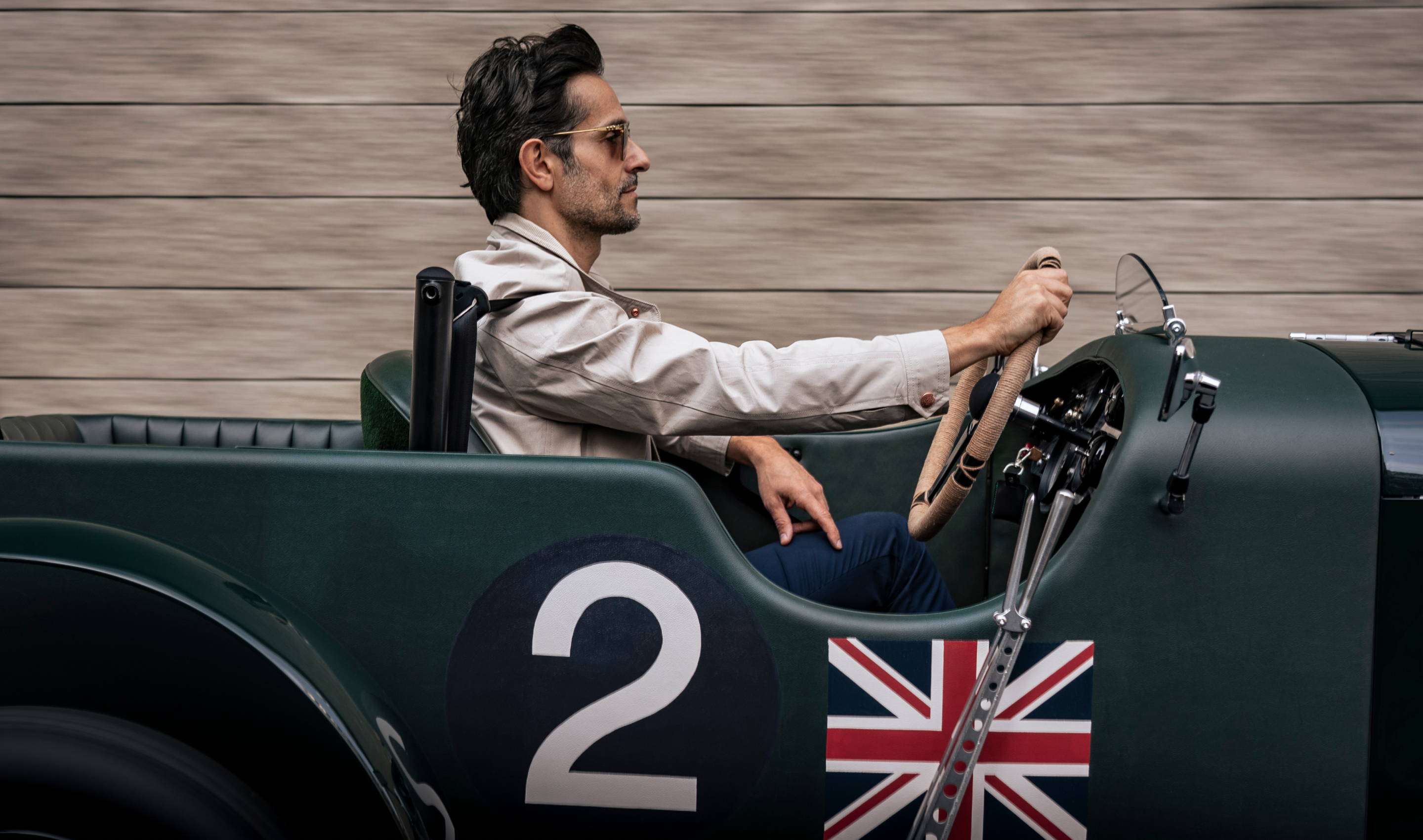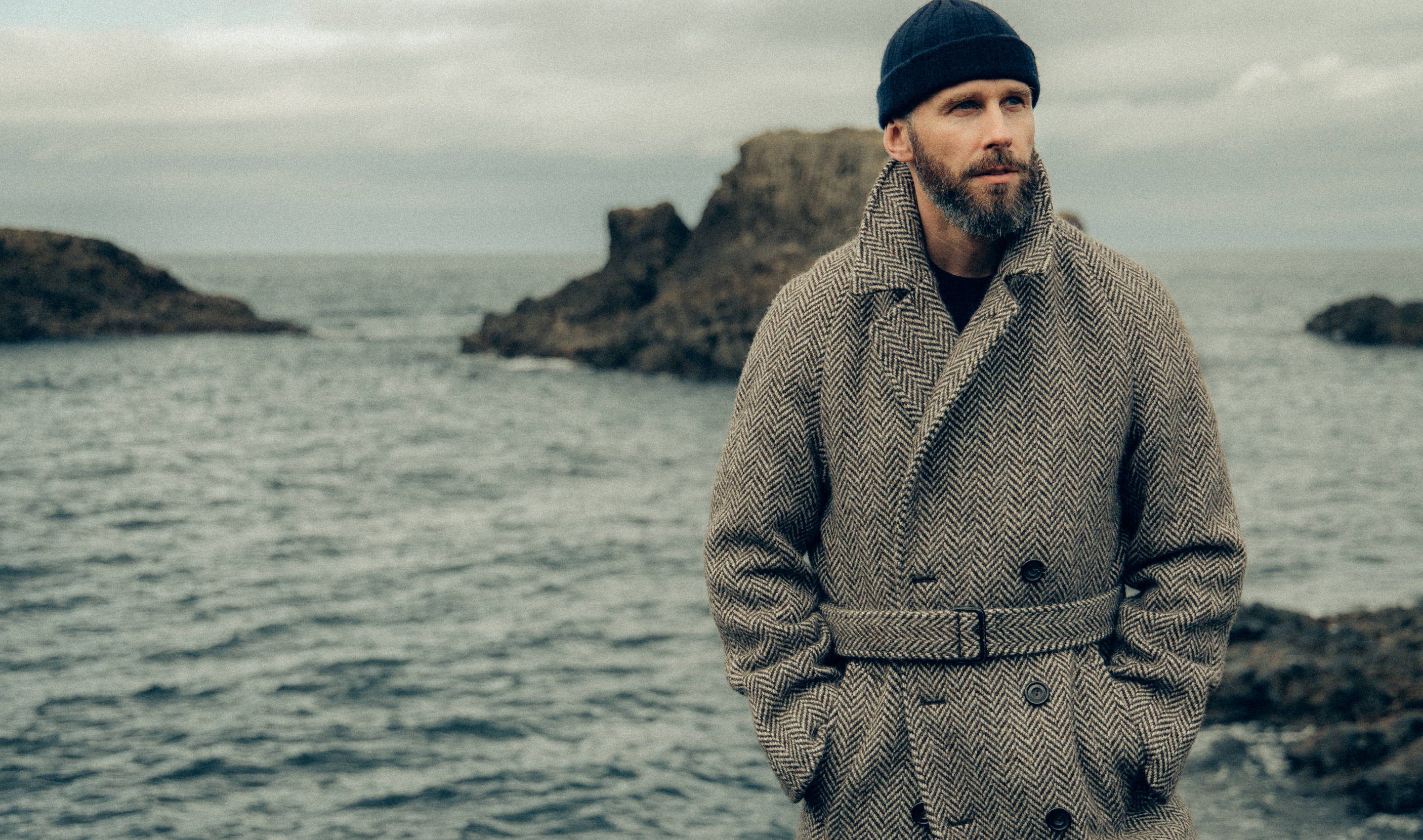Remembrance Day on 11th November has a particular significance at Private White V.C., given that the brand is named in honour of my great grandfather Jack White, who was a decorated veteran of the First World War and recipient of the Victoria Cross. In the hectic daily routine of running the business, I do my utmost to take a moment and remember what he achieved and the wider implications of an event that altered the world forever.
It is also important to remember the war for the impact it had on Manchester, which has been home to our factory for over 100 years. In a conflict where every town and village, street and house lost people, the city has a fateful position. The Manchester Regiment was involved in the first actions of the Battle of the Somme on 1 July 1916 - a day which proved to be the deadliest in the history of the British Army with 57,000 missing, wounded or killed.
Earlier this year, The Manchester Jewish Museum, housed in a magnificent Grade II listed synagogue dating back to 1874, reopened its doors after a multi-year transformation. The reopening was marked by an installation from Turner Prize-winning artist Laure Prouvost along with a commemorative plaque dedicated to Private Jack White, one of the region’s few recipients of the Victoria Cross.
‘Grandpa’ Jack’s commitment to honoring the fallen extended far beyond his military service. He played a pivotal role in founding the Jewish Ex-Servicemen's Association and the Salford Branch of the British Legion. In 1929, during a dinner in London to honor V.C. recipients, he had a fateful reunion with Captain S. Paterson, a fellow soldier he had rescued from danger 12 years earlier. Despite the passage of time, the details of their meeting remain shrouded in mystery, and the later life of Captain Paterson remains elusive. One can only imagine the shared experiences and unspoken bonds that must have defined that reunion.
"His bravery under fire in Mesopotamia, now modern Iraq, meant he rescued his comrades and, unlike so many others who did not survive the conflict, gave them an opportunity to live their lives to the full."
JAMES EDEN, CEO & FOUNDER
PICTURED: PRIVATE JACK WHITE MEETING CAPTAIN PATERSON
The scars of war, both physical and psychological, were carried by all who returned. It is a testament to their resilience that they came back with a profound commitment—to remember those who had fallen and to seize the precious opportunity for a full and meaningful life, regardless of whether they were decorated heroes or humble foot soldiers, infantrymen, or clerks.
Remembrance Day often sneaks up on us, with poppies suddenly adorning lapels as a poignant reminder of the season. Yet, I believe that being engrossed in the daily demands of managing Private White V.C. and nurturing a family is precisely what my great grandfather would have desired. His sacrifice and the sacrifices of countless others have bestowed upon us the peace and security to immerse ourselves in the joys, challenges, and simplicity of everyday life.
On this Remembrance Day, as we remember Jack White V.C. and all those who served and sacrificed, let us also cherish the enduring legacy of their courage, selflessness, and unwavering dedication to a better world.
May their memory continue to inspire us to strive for peace and to live our lives to the fullest, just as they would have wanted.
Lest we forget
James Eden CEO & Great grandson of Private White V.C.
Remembrance Day on 11th November has a particular significance at Private White V.C., given that the brand is named in honour of my great grandfather Jack White, who was a decorated veteran of the First World War and recipient of the Victoria Cross. In the hectic daily routine of running the business, I do my utmost to take a moment and remember what he achieved and the wider implications of an event that altered the world forever.
It is also important to remember the war for the impact it had on Manchester, which has been home to our factory for over 100 years. In a conflict where every town and village, street and house lost people, the city has a fateful position. The Manchester Regiment was involved in the first actions of the Battle of the Somme on 1 July 1916 - a day which proved to be the deadliest in the history of the British Army with 57,000 missing, wounded or killed.
Earlier this year, The Manchester Jewish Museum, housed in a magnificent Grade II listed synagogue dating back to 1874, reopened its doors after a multi-year transformation. The reopening was marked by an installation from Turner Prize-winning artist Laure Prouvost along with a commemorative plaque dedicated to Private Jack White, one of the region’s few recipients of the Victoria Cross.
‘Grandpa’ Jack’s commitment to honoring the fallen extended far beyond his military service. He played a pivotal role in founding the Jewish Ex-Servicemen's Association and the Salford Branch of the British Legion. In 1929, during a dinner in London to honor V.C. recipients, he had a fateful reunion with Captain S. Paterson, a fellow soldier he had rescued from danger 12 years earlier. Despite the passage of time, the details of their meeting remain shrouded in mystery, and the later life of Captain Paterson remains elusive. One can only imagine the shared experiences and unspoken bonds that must have defined that reunion.
"His bravery under fire in Mesopotamia, now modern Iraq, meant he rescued his comrades and, unlike so many others who did not survive the conflict, gave them an opportunity to live their lives to the full."
JAMES EDEN, CEO & FOUNDER
The scars of war, both physical and psychological, were carried by all who returned. It is a testament to their resilience that they came back with a profound commitment—to remember those who had fallen and to seize the precious opportunity for a full and meaningful life, regardless of whether they were decorated heroes or humble foot soldiers, infantrymen, or clerks.
Remembrance Day often sneaks up on us, with poppies suddenly adorning lapels as a poignant reminder of the season. Yet, I believe that being engrossed in the daily demands of managing Private White V.C. and nurturing a family is precisely what my great grandfather would have desired. His sacrifice and the sacrifices of countless others have bestowed upon us the peace and security to immerse ourselves in the joys, challenges, and simplicity of everyday life.
PICTURED: PRIVATE JACK WHITE MEETING CAPTAIN PATERSON
On this Remembrance Day, as we remember Jack White V.C. and all those who served and sacrificed, let us also cherish the enduring legacy of their courage, selflessness, and unwavering dedication to a better world.
May their memory continue to inspire us to strive for peace and to live our lives to the fullest, just as they would have wanted.
Lest we forget
James Eden CEO & Great grandson of Private White V.C.
















Leave a comment
This site is protected by reCAPTCHA and the Google Privacy Policy and Terms of Service apply.